Podcast: Download
Subscribe: Apple Podcasts | RSS
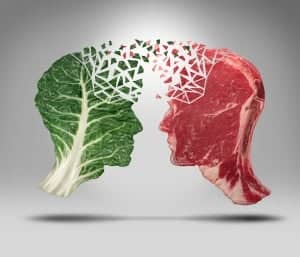
But for something you do so often, are you getting the most out of your eating, for both your body and mind?
Doctors, nutritionists, fitness instructors, and your mom are constantly preaching:
“You are what you eat.”
“An apple a day keeps the doctor away.”
“Eat your fruits and veggies.”
Undoubtedly …
… diet is consistently cited as one of the more important aspect to weight loss and overall good health. What you eat can make you healthy, happy, and well-functioning, or throw you into a death-spiral of obesity, disease, and disability.
It should come as no surprise that diet also affects mental health. In fact, there is mounting evidence that specific types and classes of food can have beneficial – or detrimental – effects on memory.
Recently, for example, coconut oil has come into question.
And rest assured, all kinds of things will continue to come into question as scientists goes about their good work.
The question is…
Is it possible to change your diet to maintain, and even achieve new and better levels of memory and information retention?
We are all salivating for a definitive answer, but for the most part, the jury is still out.
Much of the research surrounding food and memory are in preliminary stages and tested on animal subjects. Not to dismiss the abilities of a lab rat, but making the connection between a rat and a human is dubious.
However, we aren’t entirely left in the dark. In fact, there is exciting new research pointing to real and impressive associations between food and memory.
This post (don’t forget to listen to the podcast version too) will dive into this salad bowl of findings and scoop out foods to help with memory conservation and retention.
All you’re left with is the easy – and delicious – part of figuring out how to incorporate these foods into your meals.
So, let’s dig in.
The Ugly Nut That Should Get More Attention
They look like brains, are hard to crack, and have a slight bitter flavor. Walnuts taste as unique as they look, and cracking them open has been a strength test for bodybuilders everywhere.
Beyond their use as a party trick, these funny-looking nuts have some evidence pointing to their ability to improve memory.
It’s not due to their pretty appearance. Walnuts contain the highest source of antioxidants among their nut brothers and sisters (Vinson and Cai 134). Perhaps due to their impressive antioxidant profile, walnuts have garnered research specifically on their abilities to improve memory.
A recently published, cross-sectional American study was conducted analyzing the association of walnuts to several forms of cognitive function (Arab and Ang 284). The study included participants from a variety of ethnicities, age groups, and genders. It surveyed over 20,000 people about their dietary habits and had them take various cognitive tests. These tests included reaction time, numerical processing, and recall.
This is perhaps the largest walnut to cognitive function study ever done on the US population, and boasts impressive results.
The study showed strong associations between higher walnut consumption and progressively better scores on each cognitive test, including the memory recall test (Arab and Ang 284).
In other words, the more walnuts they ate per day, the better their memory became. These results applied to all of the age groups studied, ranging between the ages of 25-59.
The study concludes with an (albeit serious and scientific) ode to walnuts.
“These significant, positive associations between walnut consumption and cognitive functions among all adults [. . .] suggest that daily walnut intake may be a simple beneficial dietary behavior.”(Arab and Ang 284)
This study does not stand alone.
Another study focusing on elderly subjects found positive effects of walnut consumption on memory recall (Valls-Pedret et al. 773).
What all these studies are really trying to say is, “Walnuts. Get on that”. Raw or roasted, add them to salads, to your oatmeal or even to the your green smoothies in the morning. If the statistics are correct, you should be getting smarter and remembering more details than ever.
How Green Tea Can Super-Charge Your Memory
Green tea is a favourite around the world. It’s found in a variety of drinks outside of its standard tea form, including lattes, soft drinks, and even ice cream. Green tea has been in the limelight for a while compared to other memory boosting teas for its purported ability to aid in treating nearly any ailment.
Every other week there seem to be stories about green tea’s heroism in fighting cancer and diabetes. Hype aside, can green tea help your memory and mind as well?
In a study conducted on Japanese residents over age 60, higher green tea consumption was associated with lower incidence of dementia (Noguchi-Shinohara et al). Dementia is a common cognitive and memory decline associated with growing older.
The study suggests that green tea consumption could be beneficial for reducing our risk of memory decline.
But what about improving our memory here and now?
A very interesting, albeit small, study on college students, sought an answer to this question (Schimdt et al 3888). The study examined the effects of green tea extracts on brain activity in the prefrontal cortex of the brain. 12 healthy volunteers were given green tea infused drinks and asked to perform a working memory task while in an MRI.
During the task, the prefrontal cortex showed increased activity and the volunteers performance was heightened (Schimdt et al 3888).
A larger study looked at the effects of tea consumption on the cognitive abilities of middle-aged adults in community living in Singapore. This study didn’t test green tea exclusively, but it found protective and enhancing affects of green tea on cognition, including memory (Feng et al 438).
The evidence suggests that drinking green tea daily will protect from future memory decline and may even provide a memory boost.
The Small Berry That Packs A Punch You’ll Remember
Blueberries aren’t just for toddlers and vanilla ice cream anymore. Blueberries are showing some promise in the protection of your memory.
In a study of nine older adults with memory decline, consuming blueberry juice over 12 weeks resulted in improved memory function. Each day this group of five men and four women drank blueberry juice. After 12 weeks of drinking blueberry juice, these nine test subjects showed improvements in recall and general cognitive functioning (Krikorian et al 4000).
Although small and preliminary, the research offers an interesting benefit to an already very health food. If you aren’t already eating blueberries, these findings should be the kick you needed to start adding them to your smoothies.
Nothing Fishy About This Brain Food
If you’ve been on the internet at any point in the last ten years, you’ve probably heard about “Omega-3s”.
You may not know exactly what they do or what they are, but you know you need more of them.
The purported benefits of Omega-3s is the reason fatty fish have been promoted as a necessary addition to your weekly meals. Fatty fish, such as salmon, contain some of the highest levels of Omega-3s.
Similarly to green tea, Omega-3s have been touted as having a wide variety of health benefits. These include things like reducing pain associated with rheumatoid arthritis, ensuring the healthy development of babies, and aiding against dementia.
Setting the former two claims aside, it does seem that Omega-3s, as consumed through fish, have a protective effect against memory deterioration.
A large study followed 889 older adult men and women over nine years. It was hoping to understand whether differences in fatty fish intake impacted the prevalence of dementia by the ninth year (Schaefer et al 1545).
Researchers found that subjects with the highest intake of Omega-3 fatty acids had a lower risk of developing dementia and Alzheimer’s. Their subjects consumed a mean of three servings of fatty fish per week and the risk reduction was impressive. Subjects that consumed the most fish saw their risk of memory impairment decline by 47% (Schaefer et al 1545).
Another study followed a group of 281 people aged 65 to investigate the correlation between fish intake and brain deterioration. This study found that higher levels of Omega-3 fatty acids in the blood, predicted reduced deterioration for its test subjects (Samieri et al 642).
In another very large study of over 1,200 people, Omega-3 fatty acid, along with various other micronutrient levels, were analyzed. The results were compared to the prevalence of an important biomarker for dementia, a compound in the blood that predicts Alzheimer’s. Sure enough, those with high levels of Omega-3 fatty acids had a lower amount of the threatening biomarker (Gu et al 1832).
What’s really interesting is that these results were not replicated through supplementation.
In a huge study, supplementation Omega-3 fatty acids were given to 4,203 subjects to determine whether memory function improved. The study followed subjects for five years, during which they tested various cognitive functions, including memory. The results showed that supplementation did not have a significant effect on cognitive function (Chew et al 791).
Moral of the story? There seems to be real memory benefits and protective effects to eating foods high in Omega-3 acids, such as in fish. Moreover, supplements have not proven effective. You’re much better off saving your money for a nice salmon filet once a week.
The Simple Diet That Brings It All Together
It might get tiring eating walnuts, berries, green tea, and fish all the time. But you’re in luck! As it turns out, there is an entire diet which has been shown to be protective against memory degeneration. The diet, called the MIND diet, reduces the risk of cognitive decline and memory by 35%. And that’s just for people who followed the diet moderately well (Morris et al 1022).
For those who stuck to the diet closely, the study measured an impressive reduction of 53%.
This diet has not, as of yet, been shown to enhance memory for healthy adults. There are no super-memory foods in the MIND diet.
Nonetheless, the MIND diet and study has shown impressive results in its potential to protect you from memory deterioration.
The MIND diet is a combination of two very well-studied diets: Mediterranean and DASH. Unlike these two diet, it places a special emphasis on the consumption of berries, strawberries, and blueberries in particular (remember them?).
The diet involves the following:
- At least three servings of whole grains a day
- A salad and one other vegetable a day
- A glass of wine a day
- A serving of nuts a day
- Beans every other day
- Poultry and berries at least twice a week
- Fish at least once a week
The MIND diet also calls for limiting or eliminating unhealthy foods, especially butter, cheese, and fast or fried food.
In a time when many countries are facing ageing populations and increasing rates of Alzheimer’s, the MIND diet offers hope. As of yet, there is no effective cure for Alzheimer’s. Every step to a more definitive prevention of Alzheimer’s is a step in the right direction.
Don’t Be Tricked By Ginkgo
Apart from being a lovely decorative tree across North America, Ginkgo Biloba is an ancient species of trees. In fact, they are known to be the oldest tree species in the world, remaining unchanged for over 200 million years. That’s right, this tree has been around since the dinosaurs. Unlike the dinosaurs, they did not go extinct.
Not just a pretty tree, Ginkgo Biloba has also been used in east asian culinary. For example, Ginkgo seeds are added to a traditional vegetarian dish called “Buddha’s Delight”.
Otherwise, Ginkgo Biloba has earned a shining memory-boosting reputation in both alternative medicine circles and the mainstream population. According to the New York Times, it is widely marketed as a preventative treatment to Alzheimer’s disease. What’s more, it is America’s best-selling herbal cognitive enhancement.
But is there substance behind these claims?
Unlike many food claims, definitive answers are possible because Ginkgo is one of the most commonly studied herbs in the world.
Ginkgo has not shown evidence for preventing memory-loss diseases in later life, including dementia. In 2015, a study reviewing many previous studies available on Ginkgo showed no effect on memory loss prevention (Charemboon and Jaisin 508).
But can it help enhance memory for healthy adults?
Again, the evidence is lacking. A similarly large review conducted in 2012 found nothing to prove that Ginkgo Biloba enhances memory, despite the marketing (Laws et al.).
All that glitters is not gold, especially when it comes to claims made by herbal supplement manufacturers. Save your money on Ginkgo supplements and move on to other, better evidenced memory-supporting foods.
Start On Your Memory-Boosting Journey
(Without Supplements)
It’s difficult to isolate specific components in foods that make them effective. It’s been found that blueberries, walnuts, and green tea have amongst the highest levels of antioxidant among their respective food groups.
Antioxidants are thought to protect against cell damage from free radicals, which occur naturally in the body due to normal metabolism.
However, many studies analyzing the effects of antioxidant supplements have failed to show significant effects. It seems that you must take the food with the antioxidant.
Although there may be a time and place for supplementation, uprooting food in their place is a poor strategy.
In any case, the variety and availability of these delicious foods leaves no reason not to incorporate them into your diet. Memory-boosting foods and diets are surprisingly commonplace.
Above and beyond improving memory, eating a healthy diet will leave you feeling energetic and, most importantly, disease-free. It’s a fair statement to say that living a long and healthy life is a prerequisite to excellent memory. After all, you need to be living a long life to have something to remember.
No research needed to back that up.
Further Resources And Works Cited
Dave Farrow Talks About Focus, Fatigue And Memory Expertise
Stop Smoking And Boost Memory With These Step-By-Step Addiction Breakers
How to Stop Information Pollution From Poisoning Your Memory
Arab, L., and A. Ang. “A Cross Sectional Study of the Association between Walnut Consumption and Cognitive Function among Adult Us Populations Represented in NHANES.” J Nutr Health Aging The Journal of Nutrition, Health & Aging (2014): 284-90. Pubmed. Web. 22 Dec. 2015.
Chew, Emily Y., Traci E. Clemons, Elvira Agrón, Lenore J. Launer, Francine Grodstein, and Paul S. Bernstein. “Effect of Omega-3 Fatty Acids, Lutein/Zeaxanthin, or Other Nutrient Supplementation on Cognitive Function.” JAMA (2015): 791. UpToDate. Web. 22 Dec. 2015.
Feng, Lei, X. Gwee, E. -H. Kua, and T. -P. Ng. “Cognitive Function and Tea Consumption in Community Dwelling Older Chinese in Singapore.” J Nutr Health Aging The Journal of Nutrition, Health & Aging (2010): 433-38. Pubmed. Web. 22 Dec. 2015. <pubmed.com>.
Gu, Y., N. Schupf, S. A. Cosentino, J. A. Luchsinger, and N. Scarmeas. “Nutrient Intake and Plasma -amyloid.” Neurology (2012): 1832-840. UpToDate. Web. 22 Dec. 2015.
Krikorian, Robert, Marcelle D. Shidler, Tiffany A. Nash, Wilhelmina Kalt, Melinda R. Vinqvist-Tymchuk, Barbara Shukitt-Hale, and James A. Joseph. “Blueberry Supplementation Improves Memory in Older Adults †.” J. Agric. Food Chem. Journal of Agricultural and Food Chemistry (2010): 3996-4000. Pubmed. Web. 22 Dec. 2015. <pubmed.com>.
Laws, Keith R., Hilary Sweetnam, and Tejinder K. Kondel. “Is Ginkgo Biloba a Cognitive Enhancer in Healthy Individuals? A Meta-analysis.” Human Psychopharmacology: Clinical and Experimental Hum. Psychopharmacol Clin Exp (2012): 527-33. Print.
Morris, Martha Clare, Christy C. Tangney, Yamin Wang, Frank M. Sacks, Lisa L. Barnes, David A. Bennett, and Neelum T. Aggarwal. “MIND Diet Slows Cognitive Decline with Aging.” Alzheimer’s & Dementia (2015): 1015-022. Elsevier. Web. 22 Dec. 2015.
Noguchi-Shinohara, Moeko, Sohshi Yuki, Chiaki Dohmoto, Yoshihisa Ikeda, Miharu Samuraki, Kazuo Iwasa, Masami Yokogawa, Kimiko Asai, Kiyonobu Komai, Hiroyuki Nakamura, and Masahito Yamada. “Consumption of Green Tea, but Not Black Tea or Coffee, Is Associated with Reduced Risk of Cognitive Decline.” PLoS ONE (2014). NCBI. PLOS ONE. Web. 22 Dec. 2015.
Samieri, Cécilia, Pauline Maillard, Fabrice Crivello, Evelyne Peuchant, Catherine Helmer, Michèle Allard, Jean-Francois Dartigues, Stephen Cunnane, Bernard Mazoyer, and Pascale Barberger-Gateau. “Plasma Long-chain Omega-3 Fatty Acids and Medial Temporal Lobe Atrophy: A Longitudinal MRI Study.” Alzheimer’s & Dementia (2012). UpToDate. Web. 22 Dec. 2015.
Schaefer, Ernst J., Vanina Bongard, Alexa S. Beiser, Stefania Lamon-Fava, Sander J. Robins, Rhoda Au, Katherine L. Tucker, David J. Kyle, Peter W. F. Wilson, and Philip A. Wolf. “Plasma Phosphatidylcholine Docosahexaenoic Acid Content and Risk of Dementia and Alzheimer Disease.” Arch Neurol Archives of Neurology (2006): 1545. UpToDate. Web. 22 Dec. 2015.
Schmidt, André, Felix Hammann, Bettina Wölnerhanssen, Anne Christin Meyer-Gerspach, Jürgen Drewe, Christoph Beglinger, and Stefan Borgwardt. “Green Tea Extract Enhances Parieto-frontal Connectivity during Working Memory Processing.” Psychopharmacology (2014): 3879-888. Pubmed. Web. 22 Dec. 2015. <http://www.ncbi.nlm.nih.gov/pubmed/24643507>.
Valls-Pedret, Cinta, Rosa Maria Lamuela-Ravent’os, Alexander Medina-Rem’on, Melibea Quintana, Dolores Corella, Xavier Pinto, Miguel Angel Martınez-Gonzalez, Ramon Estruch, and Emilio Ros. “Polyphenol-Rich Foods in the Mediterranean Diet Are Associated with Better Cognitive Function in Elderly Subjects at High Cardiovascular Risk.” Journal of Alzheimer’s Disease 29 (2012): 773-82. IOS Press. IOS Press. Web. 22 Dec. 2015.
Vinson, Joe A., and Yuxing Cai. “Nuts, Especially Walnuts, Have Both Antioxidant Quantity and Efficacy and Exhibit Significant Potential Health Benefits.” Food Funct. (2011): 134-40. Royal Society of Chemistry. Web. 22 Dec. 2015.
Weinmann, Stefan, Stephanie Roll, Christoph Schwarzbach, Christoph Vauth, and Stefan N Willich. “Effects of Ginkgo Biloba in Dementia: Systematic Review and Meta-analysis.” BMC Geriatr BMC Geriatrics (2015): 14. Print.

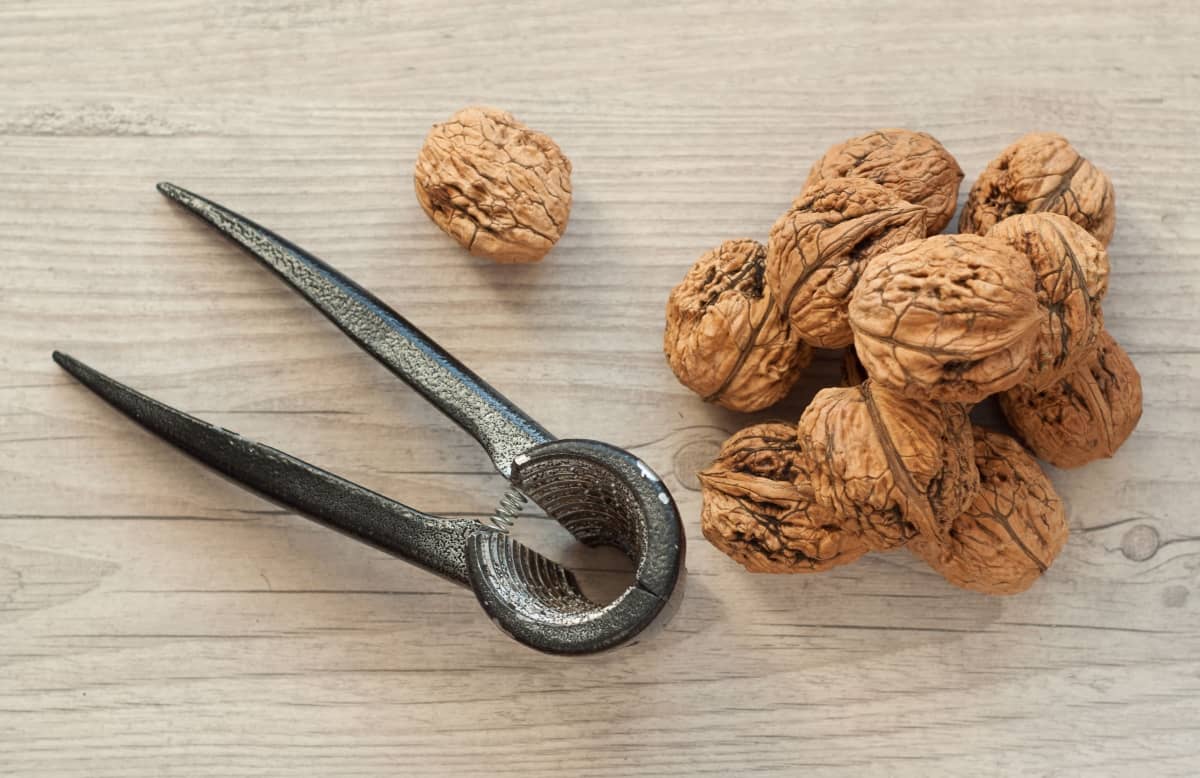
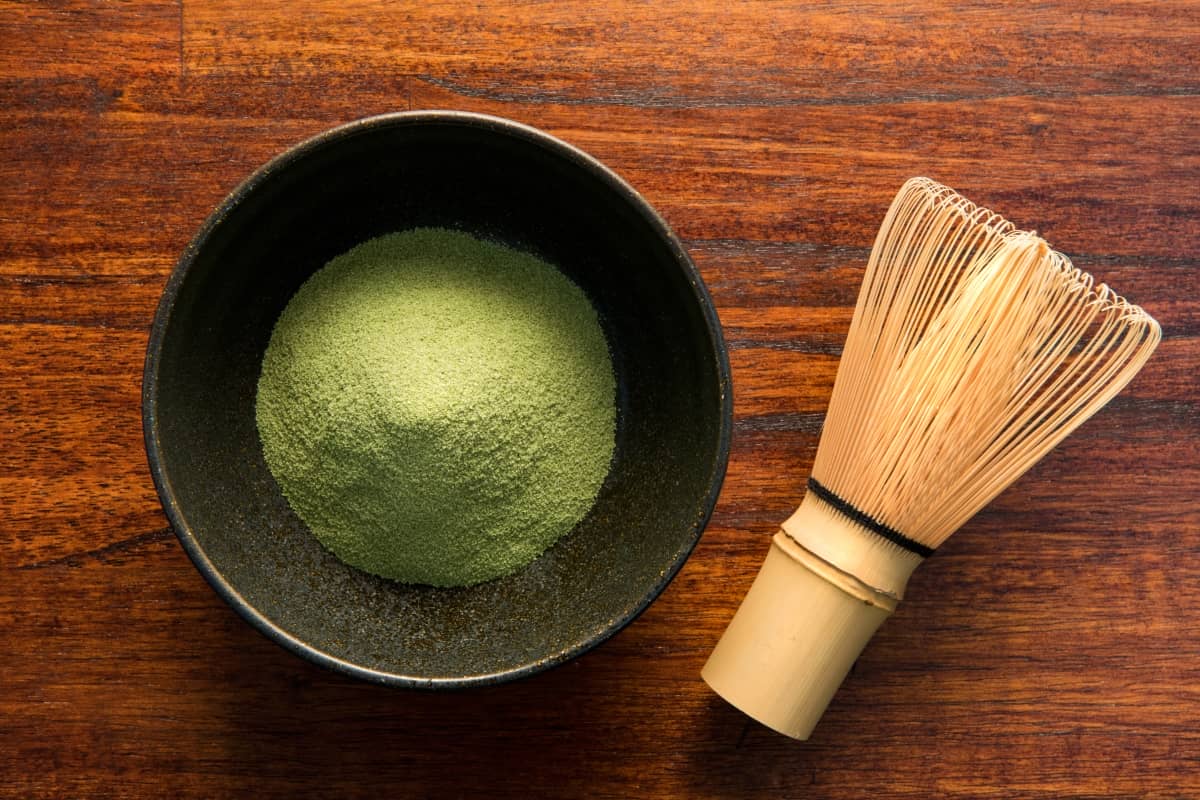
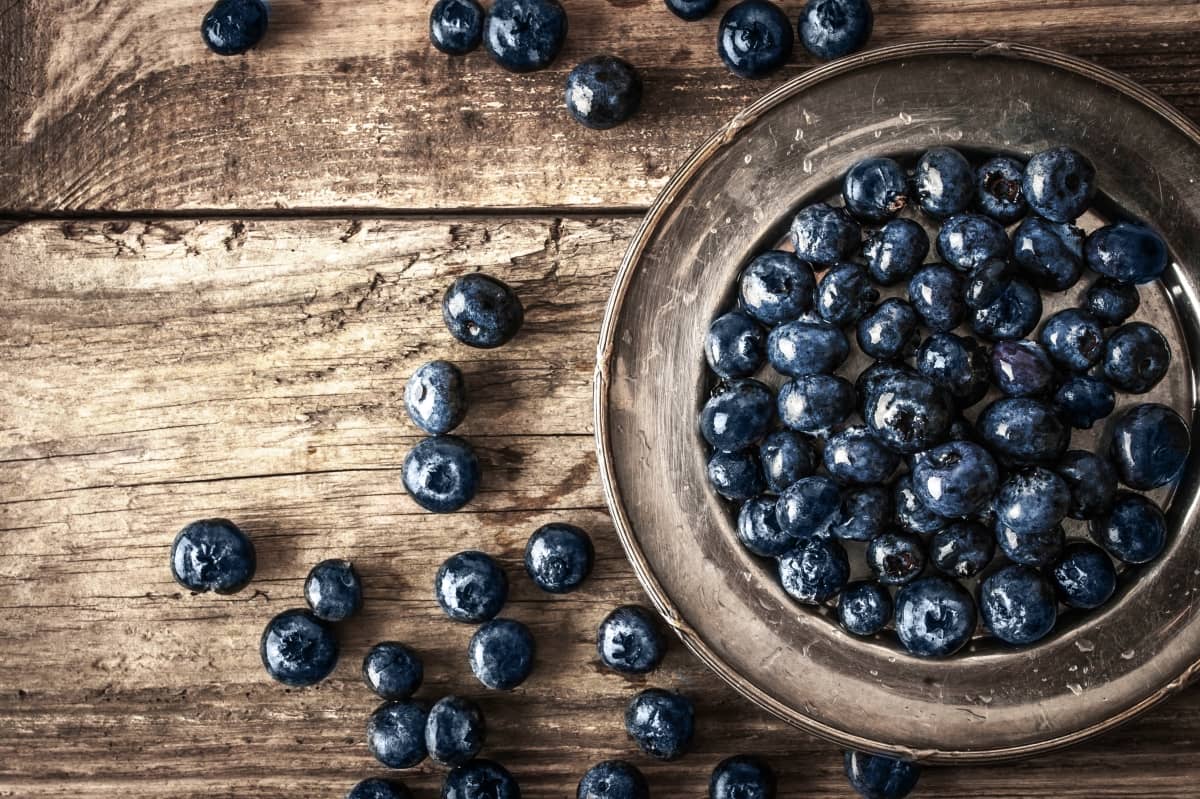
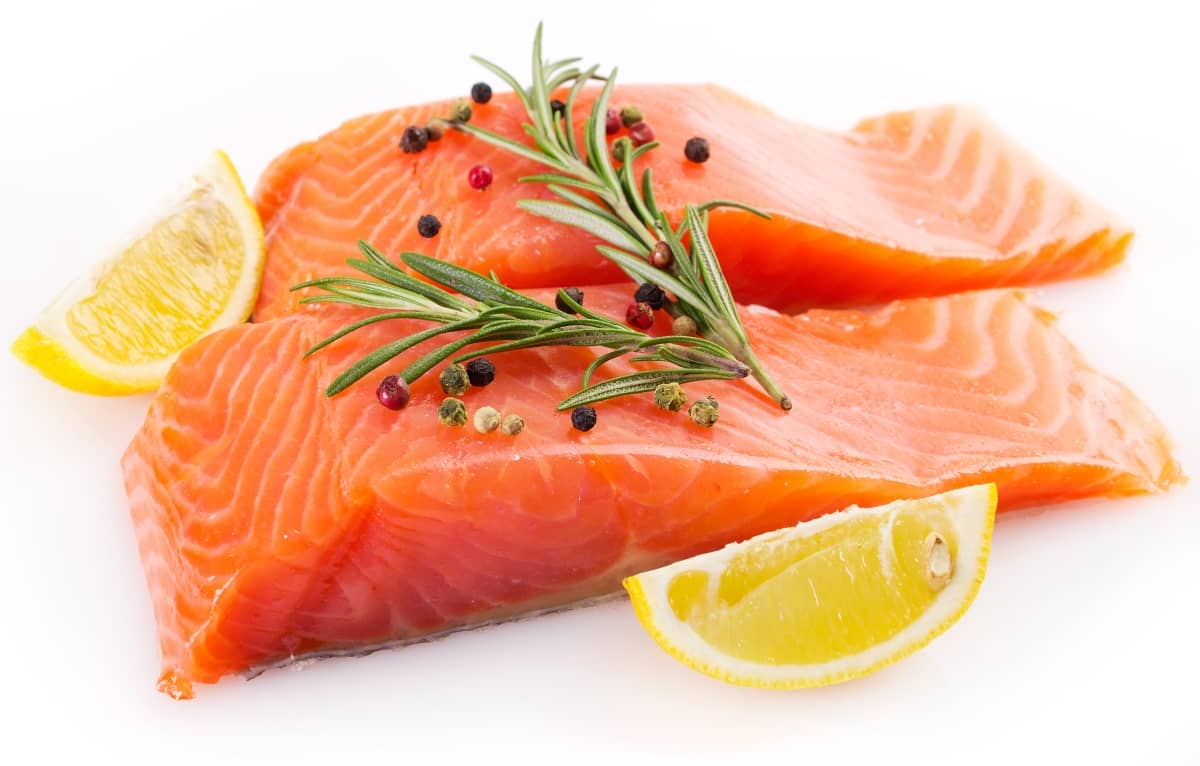






(Grass-fed) Butter is not unhealthy. Eating whole grains is terrible advice as we cannot digest them. All grains should be avoided, and beans (except green beans).
“Limiting/avoiding fried food” is misleading. Foods fried in processed vegetable oils should be avoided. Foods fried in coconut oil, butter, avocado oil, animal fat (from animals fed their natural diet) should not be limited or avoided.
A major cause of Increasing rates of Alzheimer’s is the brain literally being starved of fuel : FAT. It’s what were designed to process. Our natural diet is simple: High fat, Moderate protein, Low/Zero carbohydrates. And yes, we can live exceptionally well without carbohydrates.
Thanks kindly for your input, Chris.
As mentioned in the podcast version of this post, I myself don’t eat this particular diet due to arthritic issues. I’m 100% with you when it comes to fat and am all about grain-fed meats and the coconut oil.
Would you be kind enough to share the specific of your personal diet and how you feel it either helps, hinders or perhaps has a neutral effect on your memory? That would be awesome. 🙂
Well dang, I had no idea walnuts were so amazing, and lucky for me I actually like them – I don’t find them bitter at all! I quite enjoy cracking them and picking out the nuts as well – it brings back fond memories of doing it as a child 🙂
Yes, walnuts are fun to open.
Thanks for stopping by and commenting today. What projects are you currently working on with your memory development? 🙂
Thanks for sharing this Anthony! Dang, I’m atm consuming omega 3 fat supplements, but that’s only because I’m on a cleansing, fresh food & fasting diet. It’s something I regularly do, and this time I’m giving a special notice how this cleansing my body out of excessive mush affects my cognition and memory.
I have tried Ginkgo, and I dodn’t notice memory improvements but nevertheless it affected my mood and cognition in a positive way. Also I’ve found Ashwagandha and Brahm helpful.
The supplements can have (to my experience) a detouring effect on one’s memory, since they can improve the overall wellbeing and thus so, it’s more pleasurable to remember things, and live your life with vitality. 🙂 Thanks again!
Great to have this feedback from you, Vesa! I’m going to look into the substances you’ve mentioned and see what I find.
One thing I’ve found is that food quality in different places when I travel has a very profound effect. I didn’t think of it at the time, but when I was reporting on my poor memory results at the ThinkBuzan training, it could well have had to do with the sudden change in my diet.
It’s all so interesting how sensitive we are. Have you encountered the notion that the gut is our second brain? I think that could have a lot to do with things too.
Thanks again and hope to hear from you on the blog again soon. 🙂
I’m down with all of these foods, except for the fish. I make sure to get my omega-3 fatty acids from other sources.
Thanks, Kari. There are definitely other ways to get your omega-3, for sure. 🙂
Plants don’t have EPA, DPA and DHA. Fish, pasture raised ruminants, chicken (eggs) and algae have those long chained omega 3 fatty acids (EPA, DHA, DPA) ALA won’t do the trick, which you find in flax seeds, nuts etc.
Thanks for chiming in, Nico. Much appreciated.
Can you be more specific? What is the “trick,” how are you measuring it, and have you done any recorded n=1 trials where you can determine with great clarity that this or that food produced a measurable outcome? Have you split-tested your dietary findings in trials of memorizing information with and without mnemonics?